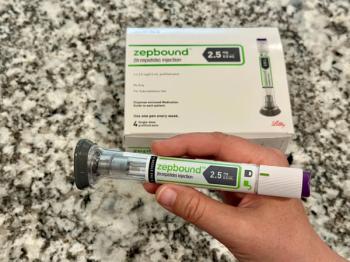
Many other issues on the new administration’s plate are taking priority.

Mya Tran, PharmD, BCOP, offers insights for navigating the complex treatment landscape for non-small cell lung cancer.

Conventional wisdom on growing old is getting a second look.

Michael Arnold, PharmD, discussed the role of oncology pharmacists in enhancing biomarker testing for patients with metastatic colorectal cancer.

The future holds the promise of earlier diagnosis, more targeted therapies, and personalized neurological care, said speaker William D. Freeman, MD, FAAN.

Huntington disease (HD) has no curative treatments, therefore, there is a great need for therapies that can reduce or slow the progression of symptoms.

Pharmacists play a key role in educating patients and prescribers on the selection, use, and management of GLP-1 receptor agonists in diabetes care.

Matthew Lei, PharmD, BCOP, highlights the value of community, collaboration, and innovation at the HOPA Annual Conference.

Monetary incentives to receive a COVID-19 vaccine at a public vaccination event may have inadvertently turned away others from receiving a booster, emphasizing the importance of recognizing spillover in trials addressing vaccine hesitancy.

Nilufer Ertekin-Taner contrasts current one-size-fits-all Alzheimer disease treatments with the promise of precision medicine and emphasizes the vital role of collaborative, multidisciplinary care.

Erin Harrell, PharmD, offers insights about managing peripheral neuropathy in patients receiving bortezomib.

The HERCULES trial demonstrates tolebrutinib's potential to slow disability progression in non-relapsing secondary progressive multiple sclerosis, offering a new treatment option for patients with limited therapeutic choices.

Numerical differences were observed as early as Month 1.

Sophie Jabban discusses research presented at the SGO Annual Meeting highlighting significant disparities in MRI access for patients with cervical cancer receiving chemoradiation, with delays linked to both race and insurance status, underscoring systemic barriers that may impact timely treatment.

Pharmacy professionals gathered at the American Pharmacists Association 2025 Annual Meeting and Exposition and discussed critical insights in interviews with Pharmacy Times®.

The approval was based on efficacy and safety data from a randomized, 3-arm, open-label phase 3 CHECKMATE-8HW trial.

Small changes in blood pressure and pulse were shown in patients of all ages, and the authors suggested that these are monitored carefully in patients being treated for ADHD.

Advanced practice provider (APP) care models allow for health systems to better individualize care for patients, effectively meeting their needs.

Kara Melmed, MD, emphasizes the critical importance of rapid, team-based intervention for intracerebral hemorrhage (ICH) patients, with pharmacists playing a key role in blood pressure management.

Pharmacists are essential navigators in the complex landscape of gene therapy.

Host Craig Beavers speaks with Steven Dunn about the latest ACC/AHA/ACEP/NAEMSP/SCAI Guideline for the Management of Patients With Acute Coronary Syndromes.

Kayla Johnson, PharmD, BCPS, BCPP, highlights how integrating pharmacists into neurology clinics drives significant cost savings, high intervention acceptance rates, and improved care coordination.

Enriqueta Felip, MD, PhD, discussed the benefits of subcutaneous pembrolizumab for patients with metastatic non–small cell lung cancer.

Fatty acid metabolism plays a critical role in treatment responses.

Sophie Jabban discusses findings from 2 studies that highlight how geographic location, race, ethnicity, and social determinants of health contribute to delays in initiating chemoradiation for patients with cervical cancer.

The multiple myeloma landscape is evolving, with bispecific T-cell engagers offering hope.

Stephanie Miller, PhD discusses how artificial intelligence can revolutionize medical research by assisting in drug development and potentially providing more targeted treatments across various diseases.

Scott Soefje, PharmD, MBA, BCOP, FCCP, FHOPA, offers insights for oncology pharmacists treating patients with metastatic esophageal squamous cell carcinoma.

Scott Soefje, PharmD, MBA, BCOP, FCCP, FHOPA, discusses a case study of a patient with metastatic esophageal squamous cell carcinoma.

Tirzepatide-treated patients with chronic kidney disease (CKD), obesity, and heart failure with preserved ejection fraction (HFpEF) had improved renal function both by cystatin C and creatinine.